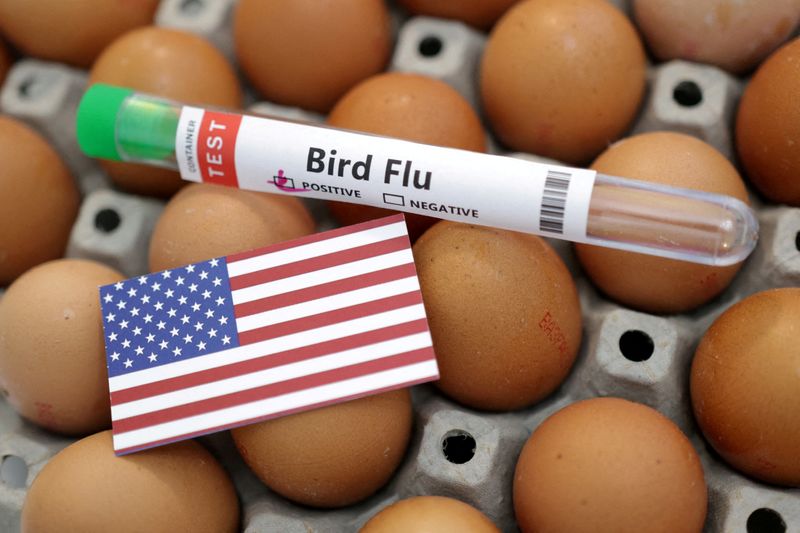CHICAGO (Reuters) - The U.S. has detected its first case of avian flu on a commercial poultry farm since April, in a flock of 47,300 turkeys in Jerauld County, South Dakota, the U.S. Department of Agriculture (USDA) said.
Infected flocks are culled to prevent the spread of the virus, potentially tightening the poultry meat and egg supply if more cases occur.
Since 2022, 58.8 million U.S. chickens, turkeys and other birds have been wiped out by the disease, officially known as highly pathogenic avian influenza (HPAI), according to the USDA. The losses drove prices for turkey meat and eggs to record highs last year, raising costs for inflation-hit consumers.
Farmers have since worked to rebuild their flocks, increasing supplies.
Cal-Maine Foods (NASDAQ:CALM), the biggest U.S. egg producer, said this week that the average price of conventional eggs dropped 48% from last year to $1.24 per dozen in a quarter that ended on Sept. 2. The company's total net sales fell 30% to $459.3 million in the quarter.

"HPAI is still present in the wild bird population and the extent of possible future outbreaks, particularly during the upcoming fall migration season, cannot be predicted," Cal-Maine said. Wild birds like ducks transmit the virus.
Prior to this week's outbreak, U.S. infections were limited to live bird markets and "non-poultry" birds since April, USDA records show. The last commercial farms infected in April raised turkeys in South Dakota and North Dakota, records show.